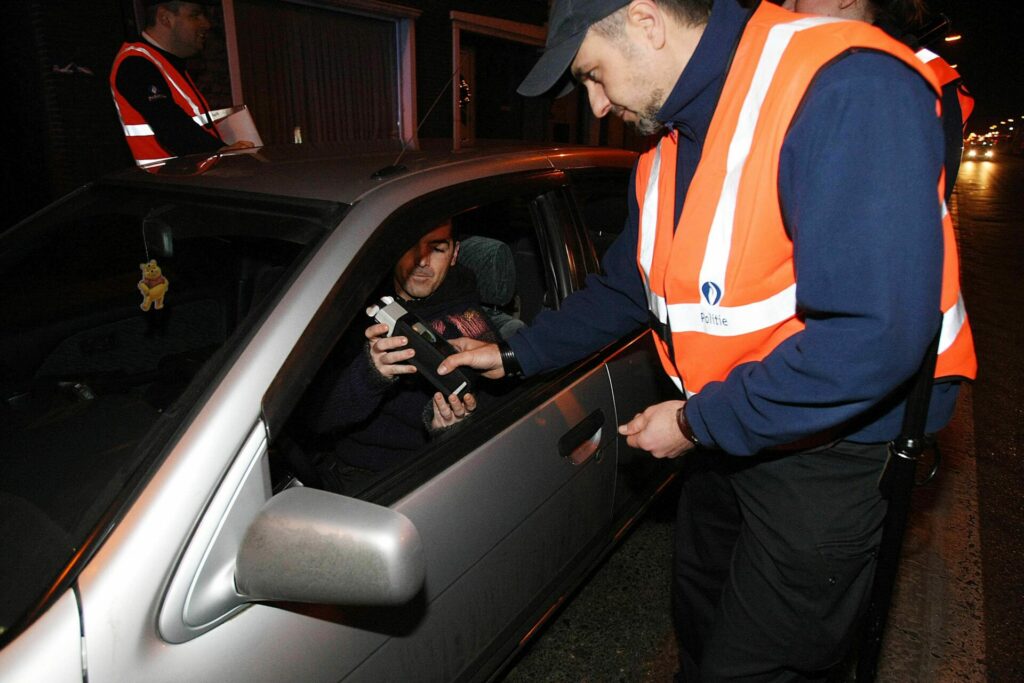Drivers in Belgium are increasingly using a variety of tactics to avoid police alcohol checks, with the number having doubled compared to four years ago, but according to a new Vias survey, nowhere is this done as much as in Brussels.
From being alerted by other motorists on social media, to taking a different route to avoid being stopped, on average one in ten drivers in the country (11%) has tried and succeeded in avoiding alcohol checks, according to a new survey by Vias road safety institute. That is twice as many as in 2018 (5%).
There are big differences in the various regions in Belgium. While more than one in five drivers (21%) in Brussels use means of evading alcohol controls, in Flanders, just 7% of drivers do so. In Wallonia, 16% of drivers try to avoid such checks.
Importantly, these checks do not only focus on whether a person is driving under influence. It also allows the police to uncover other offences, such as uninsured driving or finding people who are wanted by the police.
More checks carried out
The number of people driving under the influence of alcohol is increasing in Belgium, which is why more checks are being carried out to crack down on this problem.
This has resulted in the chance of getting caught increasing: More than one in three people in Belgium (36%) have been checked for alcohol behind the wheel in the last three years, up from 33% in 2018.
"In other words, the chance of being caught has increased slightly over the past four years. This is despite the fact that there have been temporarily fewer checks due to the pandemic," Vias noted.
Overall, the survey confirmed that Belgian drivers' mentality towards drinking when driving remains a problem, as fewer than half of all Belgians (45%) are in favour of introducing zero tolerance for alcohol behind the wheel (slightly less than four years ago when 48% were in favour).
Some even stated they want to raise the limit of a 0.8 promille of alcohol in the blood, the legal alcohol limit until 1994.
"During the pandemic, alcohol consumption increased, which may also have caused a change in support for zero tolerance," Vias stated.
When visiting friends, one in three people are inclined to drink and then drive, and while half of respondents indicated they bring friends home safely if they have been drinking and still want to drive, they are must less inclined to intervene (24%) when the person is a stranger.
"Whether the person who wants to get behind the wheel drunk is an acquaintance or a stranger, the consequences of his or her actions can be equally dire," Vias stressed.

